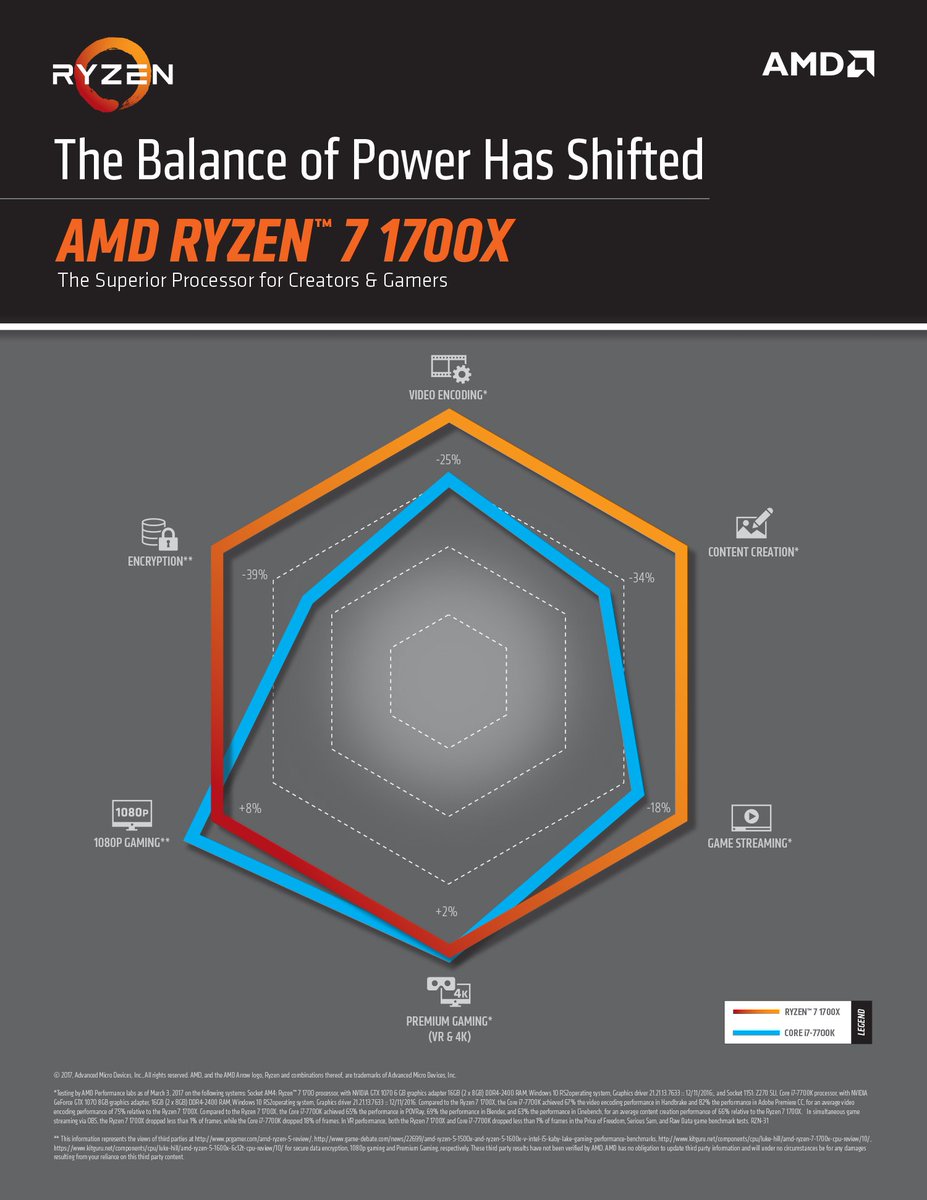When the 1st version of the benchmark was released in 2015, it was tested on all existing architectures to check the relevancy of the scores. Almsot two years later, Ryzen was introduced, and scored - core for core and clock for clock - almost 30% higher than Intel Skylake. After a deep investigation, we found out that the code of the benchmark felt into a special case on Ryzen microarchitecture because of an unexpected sequence of integer instructions. These operations added a noticeable but similar delay in all existing microarchitectures at the time the previous benchmark was developed. When Ryzen was released, we found out that their ALUs executed this unexpected sequence in a much more efficient way, leading to results that mismatch the average performance of that new architecture. We reviewed many software and synthetics benchmarks without being able to find a single case where such a performance boost occurs. We're now convinced that this special case is very unlikely to happen in real-world applications. Our new algorithm described below does not exhibit this behaviour.



